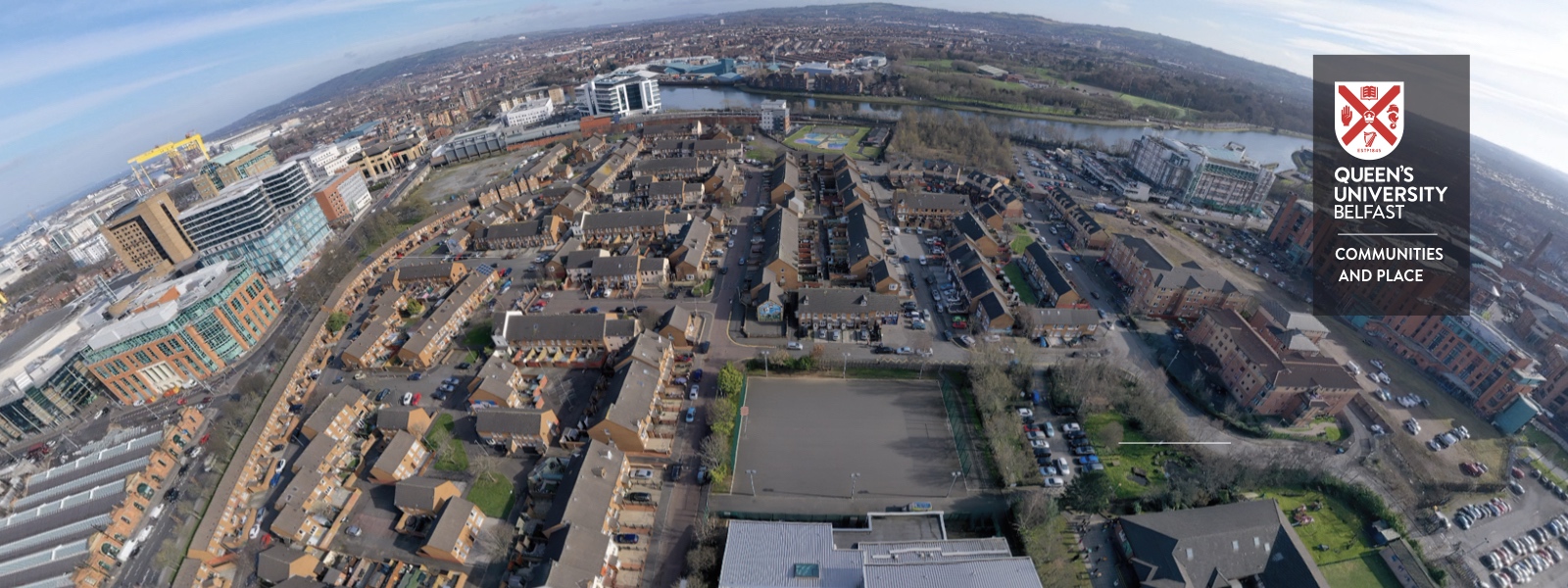Co-Designing Collaborative Curriculum Clusters in South Belfast
Queen's Communities and Place (QCAP) recently facilitated a series of co-design workshops together with a diverse group of curriculum coordinators from 16 South Belfast primary schools.
-1600x1071.jpeg)
These workshops aimed to set the foundation for an area-based collaborative network. The overall purpose of this network is to create a sustainable infrastructure where schools can work together, share resources, knowledge, and support one another to collectively tackle challenges that are difficult to address in isolation. Their ambition is to ensure the schools across South Belfast can provide more consistent, high-quality educational experiences for all pupils and staff.
Within this broader vision, the workshops focused on establishing specialised collaborative curriculum clusters in literacy, numeracy, and ICT, each supporting the network’s aims by serving as a community of practice. Each cluster group has been designed as a space for curriculum leaders to collaborate on aligning approaches—whether through shared literacy strategies, developing common frameworks for numeracy, or prioritising equitable access to digital learning tools and skills. Through these sessions, staff laid the groundwork for sustained collaboration, establishing pathways for curriculum leaders to develop and implement targeted solutions that address the diverse needs of South Belfast’s schools and communities.
An existing Special Educational Needs Coordinators (SENCO) cluster had already been established and demonstrated the value of a connected network for specialised support. While some schools had previously engaged in clusters focused on areas like literacy and numeracy, these had not been sustained over time due to various challenges. However, the schools recognise an increasing need to resurrect and formalise these clusters, reconnecting staff to collectively respond to new and emerging educational priorities.
Workshop Structure and Approach
The workshops progressed through a series of structured sessions, each designed to build on the last. Initially, participants focused on identifying the primary purpose and goals of each cluster. The sessions encouraged open discussions on current needs, resources, and aspirations within the areas of literacy, numeracy, and ICT, allowing coordinators to collaboratively establish goals tailored to their shared vision. Participants then mapped out specific assets, challenges, and untapped opportunities that could shape each cluster’s direction. Finally, the groups turned their attention to defining practical structures and processes, such as shared communication channels, meeting schedules, and roles, to ensure the clusters would remain connected and productive throughout the school year.
Reflections and Insights from Staff
Across the three workshops, staff expressed a shared appreciation for the opportunity to engage in more collaboration, noting the value for problem-solving and shared learning. Many felt that previous collaborations with other schools had lacked the necessary infrastructure and support to be effective, but they observed a renewed commitment within these clusters to establish a more impactful and sustainable approach. A recurring theme was the importance of mutual support; several coordinators highlighted how, by working together, they could draw on each other's expertise to address curriculum challenges and improve teaching practices across schools.
Points of interest included the value of sharing practical strategies for resource allocation, especially in ICT, where digital inequalities were more pronounced. Additionally, literacy coordinators noted the potential for aligning approaches to phonics and reading, while numeracy leaders saw an opportunity to streamline planning frameworks to reduce workload and enhance consistency.
Key Learnings and Strategic Outcomes
The series of workshops re-emphasised the critical role of interschool and cross-sectoral collaboration as an effective mechanism for addressing systemic and place-based challenges that individual schools often struggle to tackle independently. By formalising these clusters, schools are now better positioned to pool expertise, standardise practices, and implement cohesive strategies that enhance curriculum delivery across the locality. The sessions provided staff with a clear recognition that collaboration yields both practical solutions and a professional support network, which are essential in responding to the complex demands of contemporary education.
By adopting a strategic, place-based approach to collaboration, this network could achieve more than knowledge sharing among schools; it will establish a lasting, organised system that allows schools to jointly address challenges specific to their community context and refine practices over time. This framework for ongoing collaboration ensures that schools can collectively identify locally relevant areas for improvement, share solutions tailored to systemic needs, and adapt responsively to the evolving educational landscape of South Belfast.
Looking Ahead: Next Steps for the Partnership
Moving forward, the collaborative curriculum clusters are set to continue meeting at various points during the school year, using the content generated during the workshops to refine their activities and ways of working. The principals’ group is actively shaping a strategic plan for the South Belfast Primary School Partnership. QCAP will continue to support this effort, providing facilitation and resources to strengthen these collaborative practices.
QCAP’s involvement in establishing these collaborative curriculum clusters aligns directly with Queen’s University’s Strategy 2030, reflecting its commitment as an anchor institution focused on social and civic responsibility. By supporting the development of a school network across South Belfast, QCAP advances the university’s ambition to tackle place-based inequalities while advancing economic and social prosperity across Northern Ireland. This initiative is central to Queen’s broader mission of promoting regional growth through education and local partnerships, helping to shape a sustainable and equitable future.
This work reflects a strong commitment to transforming South Belfast’s educational landscape—supporting local schools to respond effectively to the area’s unique needs and to collectively shape a brighter, more equitable future for all pupils and their communities.

